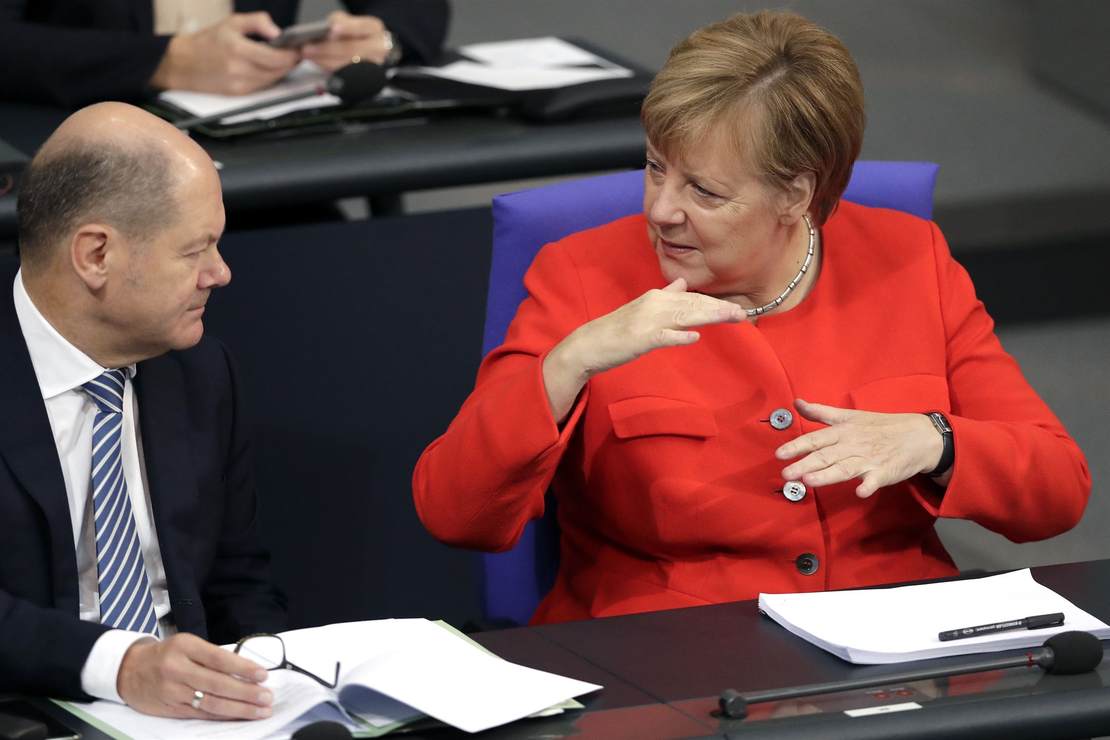
… they now look as though they will come in mighty handy. As Germany is about to put the cold in “cold turkey” in its winter withdrawal from their addiction to cheap Russian energy, they’re starting to question many of their previous decisions. Earlier this week, the Washington Post reported that Berlin wants to spin up its coal-fueled generation plants to make up for the shortfall in Russian natural gas, along with several other European nations.
At the time, I mentioned that any serious effort to remain “green” would include a new look at nuclear power as well. Lo and behold, the Wall Street Journal reports, Germany has second thoughts about shutting down those plants too:
German Chancellor Olaf Scholz said for the first time that his government could postpone the planned closure of its remaining nuclear reactors, as he criticized a decision by Russia to constrain gas flows to Germany—a move that could deal a severe blow to Europe’s largest economy. …
On Tuesday, the chancellor broke with a longstanding policy and said for the first time that it “could make sense” to keep Germany’s last three nuclear reactors online. They are due to be shut down in December as part of the country’s transition to renewable energy.
Germany decided to phase out nuclear power over two decades ago, a plan that was greatly accelerated by former Chancellor Angela Merkel following the Fukushima nuclear plant disaster in 2011.
The three remaining reactors generate 6% of Germany’s electricity. Plans to replace them with gas were upset by the economic war with Russia, Germany’s main energy supplier.
READ RELATED: BREAKING: US locks down Russian central bank, sovereign fund assets
The news comes as the global energy crisis, soaring prices for fossil fuels and climate concerns stir new interest in nuclear power. Some argue that nuclear power will be needed as a bridge as the world transitions to renewable energy. The U.K., Poland and the Netherlands all plan to build new nuclear reactors.
Ahem. Nuclear power is in fact a “renewable energy” source. It has waste products, but so do the building of solar arrays, windmills, and batteries too. The technology on nuclear power generation has improved the waste issue, although it hasn’t eliminated it. Energy creates waste in some form or another, and the challenge for all platforms is how to minimize it while making the best use of those sources — a point that we hear about when it comes to favored sources, but which suddenly become insurmountable with oil, gas, coal, and nuclear.
The problem Germany faces is that their remaining nuclear plants don’t necessarily provide enough scalability to replace their cheap Russian energy. That six percent will only go up slightly in real terms if these stations pass the stress tests that Scholz plans to conduct to make sure they’re operable for a few more years. It might not even last that long, as the Greens are still digging in their heels about shutting down nuclear power in all but the short term:
Some Greens recently indicated a degree of openness to allowing one or more reactors to keep running for a short period with their existing fuel rods, if the country faces a power supply emergency. Officials from the party have stressed that gas is a factor primarily in powering industry and heating homes, more than generating electricity, and nuclear power wouldn’t help with that.
Perhaps not this winter so much, especially since this will only keep production at its usual level. Germany could reorient its power infrastructure to switch residential and commercial heating to electric, but that would take a large investment in scalable electricity production — and that won’t come from wind and solar. The only technologies that will provide that flexibility are fossil fuels — especially coal, which is in large domestic supply in Germany — and nuclear.
If Germany is serious about going “green” for real and ending its hypocritical reliance on hostile-nation-supplied energy imports, then they either have to choose coal or nuclear power, or choose to revert back to an agrarian, non-industrial state. If they keep refusing to grow up and make an honest and responsible choice, the collapse into a pre-industrial state may end up being imposed upon them … along with all of the human misery that status will create.
Source:






